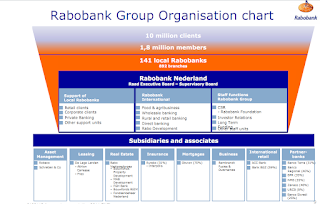De filosoof in de economie
De filosoof is een van de oudste professies. Filosofie studeren, betekent nog altijd Plato studeren, en ten tijden van de Grieken, was de filosoof een belangrijke professional in hedendaagse termen.
Hoe is de filosoof veranderd door de eeuwen heen, en dan vooral wat is zijn of haar economische bijdrage in de economie?
Kunnen we zonder filosofen? Zijn er teveel, of te weinig? In de economie, of maakt het voor een economie totaal niet uit?
Wie is belangrijker voor de economie, een filosoof als Brian Magee die zorgt voor diffusie van de filosofie of Bernard Russell die zorgt voor filosofieproductie?
Filosofie is een vakgebied dat sterk veranderd is door de eeuwen heen. In feite is het een wetenschappelijke stam waarvan andere disciplines zijn ontstaan, zoals de psychologie.
Een van de probleemgebieden van de filosofie, zo schrijft B. Russell is de rol van idealisme. Idealisme is een duidelijke bouwsteen voor ons leven. Waar zijn we zonder ideeen en idealen. Maar wat is het netto effect van idealisme? En wat betekent het voor de economie. Idealisme kan leiden tot ontsporing zoals we wel vaker gezien hebben. Ook de verzorgingsstaat zou je als een product van idealisme kunnen zien. En deze staat is op zich goed, maar kan ook doorslaan, in idealisme...?
Nog wat vragen:
- Hoe gaan verschillende landen om met filosofie, en wat is daarvan het effect op de economie van dat land? Is dat effect van "meer of minder filosofie," zichtbaar
- Hoe is het verschil tussen de twee hoofdstromingen inde filosofie zichtbaar te maken voor de economie. Is de contentale rationele vorm anders dan de emprisische filosofie die ook overeenkomst met de angelsaksische landen?
- Het verschil tussen OOsterse en Westerse filosofie, is een thema dan al voldoende aandacht krijgt, maar ook hier: verschillen de economien van beide regios hierdoor, is dat effect enigszins meetbaar of zichtbaar? Gaat de Oosterse filosofie beter om met het thema van onzekerheid en of is die filosofie meer vatbaar voor communistisch econommische systemen?
- Waarom is het Idealisme als stroming juist in Duitsland zo populair geworden
...
 |
| Filosofie Magazine - over de (filosofische) relatie tussen geld en geluk |
-- Mirjam Slob, denker des vaderlands, buigt zich over het vwo-examen filosofie. "Als je dit haalt, dan kun je echt wel wat." Filosofie leert je helder denken, over van alles: https://www.volkskrant.nl/es-b5c12108
-- En dan is er ook het thema filosofie van de economie. B.v. dit boek (De filosofie van economie, Een anthologie, van Daniel Hausman):
PART ONE. CLASSIC DISCUSSIONS
- 1. On the Definition and Method of Political Economy 41 John Stuart Mill
- 2. Objectivity and Understanding in Economics 59 Max Weber
- 3. The Nature and Significance of Economic Science 73 Lionel Robbins
- 4. Economics and Human Action 100 Frank Knight
- 5. Selected Texts on Economics, History, and Social Science 108 Karl Marx
- 6. The Limitations of Marginal Utility 129 Thorstein Veblen
PART TWO. POSITIVIST AND POPPERIAN VIEWS 143
- 7. The Methodology of Positive Economics 145 Milton Friedman
- 8. Testability and Approximation 179 Herbert Simon
- 9. Why Look Under the Hood? 183 Daniel M. Hausman
- 10. Popper and Lakatos in Economic Methodology 188 D. Wade Hands
PART THREE. IDEOLOGY AND NORMATIVE ECONOMICS 205
- 11. Science and Ideology 207 Joseph Schumpeter
- 12. Welfare Propositions of Economics and Interpersonal Comparisons of Utility 222 Nicholas Kaldor
- 13. The Philosophical Foundations of Mainstream Normative Economics 226 Daniel M. Hausman and Michael S. McPherson
- 14. Why Is Cost-Benefit Analysis So Controversial? 251 Robert H. Frank
- 15. Capability and Well-Being 270 Amartya Sen
PART FOUR. BRANCHES AND SCHOOLS OF ECONOMICS AND THEIR METHODOLOGICAL PROBLEMS
- 16. Econometrics as Observation: The Lucas Critique and the Nature of Econometric Inference 297 Kevin D. Hoover
- 17. Does Macroeconomics Need Microfoundations? 315 Kevin D. Hoover
- 18. Economics in the Laboratory 334 Vernon Smith
- 19. Neuroeconomics: Using Neuroscience to Make Economic Predictions 356 Colin F. Camerer
- 20. The Market as a Creative Process 378 James M. Buchanan and Viktor J. Vanberg
- 21. What Is the Essence of Institutional Economics? 399 Geoffrey M. Hodgson
PART FIVE. NEW DIRECTIONS IN ECONOMIC METHODOLOGY 413
- 22. The Rhetoric of This Economics 415 Deirdre N. McCloskey
- 23. Realism 431 Uskali M¨aki
- 24. What Has Realism Got to Do with It? 439 Tony Lawson
- 25. Feminism and Economics 454 Julie A. Nelson
- 26. Credible Worlds: The Status of Theoretical Models in Economics 476 Robert Sugden


Reacties